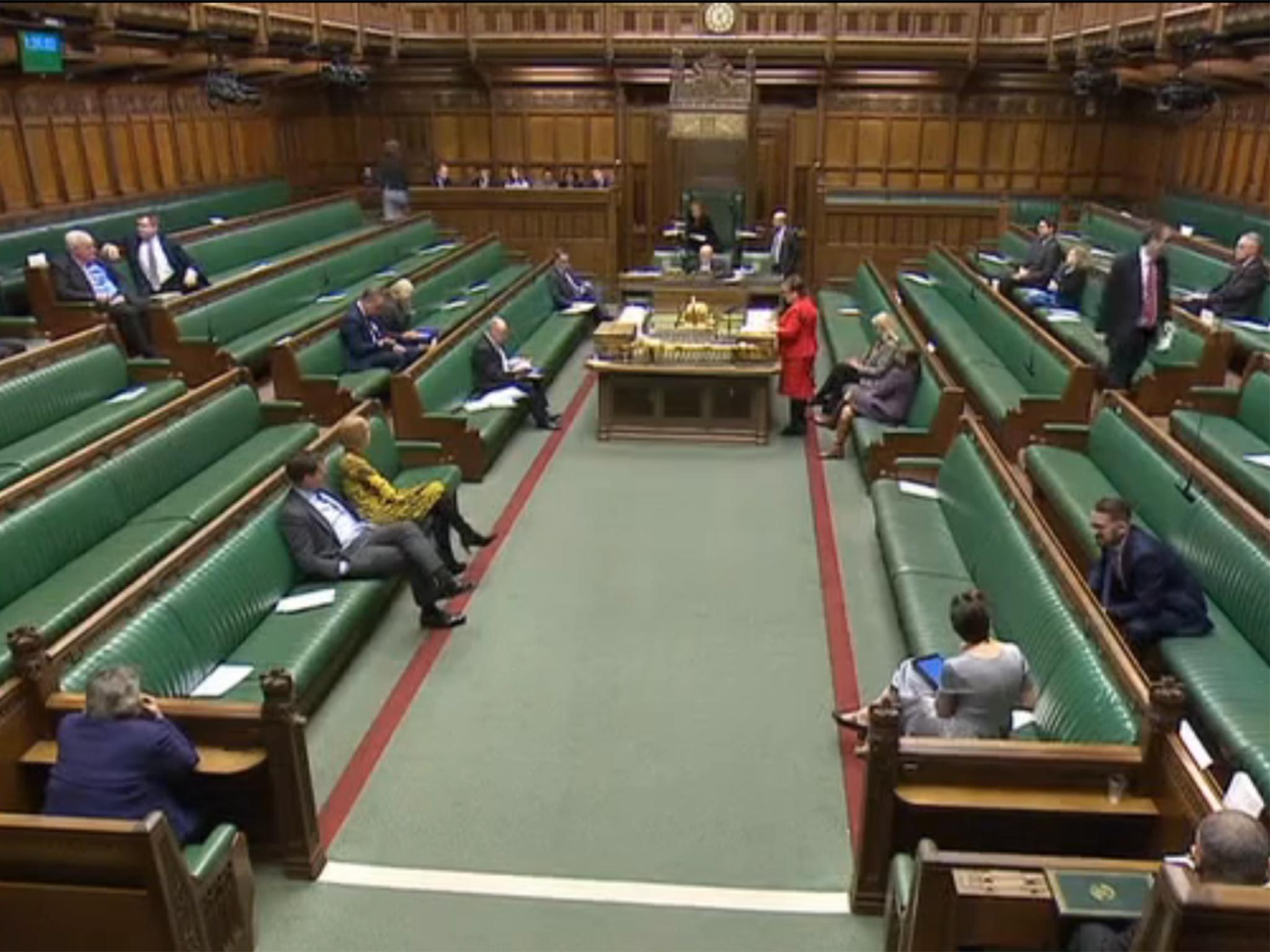MPs criticised for failing to turn up to debate on humanitarian crisis in Yemen
Only about 30 MPs showed up for emergency debate on 'almighty catastrophe' taking place

Your support helps us to tell the story
From reproductive rights to climate change to Big Tech, The Independent is on the ground when the story is developing. Whether it's investigating the financials of Elon Musk's pro-Trump PAC or producing our latest documentary, 'The A Word', which shines a light on the American women fighting for reproductive rights, we know how important it is to parse out the facts from the messaging.
At such a critical moment in US history, we need reporters on the ground. Your donation allows us to keep sending journalists to speak to both sides of the story.
The Independent is trusted by Americans across the entire political spectrum. And unlike many other quality news outlets, we choose not to lock Americans out of our reporting and analysis with paywalls. We believe quality journalism should be available to everyone, paid for by those who can afford it.
Your support makes all the difference.MPs have been criticised after only a handful turned up for a debate on the growing humanitarian crisis in Yemen.
The emergency debate was called by Tory MP Andrew Mitchell, the former International Development Secretary, who used it to raise concerns about the “almighty catastrophe of biblical proportions” that he said was unfolding in the country.
However, he was joined in the House of Commons by only around 30 of Parliament’s 650 MPs.
Social media users voiced criticism when a picture of the near-empty chamber was posted online.
“Absolutely sickening” wrote one.
“It shows that it’s not a priority”, said another.
During the debate, Mr Mitchell told MPs: “There is rapidly rising concern in Britain about what is happening in Yemen and the part that Britain is playing in this crisis. There is deep concern that an almighty catastrophe of biblical proportions is unfolding in Yemen before our eyes, and a considerable fear that Britain is dangerously complicit in it.”
He said Saudi authorities were preventing aid shipments of food and medicine from entering Yemen.
“At least seven whole cities have run out of clean water and sanitation and aid agencies are unable to get food to starving families”, he said. “The destruction of clean water and sanitation facilities is directly responsible for the outbreak earlier this year of cholera affecting nearly one million people.
“Yemen is a country ravaged by medieval diseases and on the precipice of famine. With rapidly dwindling food and fuel stocks and the dire humanitarian situation pushing at least seven million people into famine, it is now vital that there is unimpeded access for both humanitarian and commercial cargo.”
Almost 9,000 people have been killed in Yemen and 49,000 injured since March 2015. Twenty-one million people - three quarters of the population - are in need of humanitarian assistance.
Mr Mitchell told The Independent he understood that many MPs had constituency commitments on the day of the debate, and that a number had written to him to apologise for not being able to attend.
The fact that the Speaker, John Bercow, took the unusual step of granting an emergency debate on the issue “underlines the seriousness of the situation”, he said.
The former International Development Secretary said MPs of all parties were “very, very worried indeed” about what he called “the greatest looming catastrophe in the world” in Yemen.
Among those present during the debate were Emily Thornberry, the Shadow Foreign Secretary, and her predecessor, Hillary Benn.
Ms Thornberry noted the poor attendance in her speech, saying: “It is regrettable in many ways that the House is not packed today. On too many occasions the war in Yemen has been described as a forgotten war, and indeed it is.”
Describing the situation in Yemen as “the world’s biggest humanitarian crisis”, Ms Thornberry said the UK was partly to blame for the disaster and called on the Government to clamp down on arms sales to Saudi Arabia, which is bombing Yemen.
Responding, Foreign Office minister Alistair Burt said UK officials are in Saudi Arabia monitoring air strikes to ensure that UK-made weapons are used appropriately.
He said: “We have a rigorous legal and parliamentary process, and ensuring that international humanitarian law is not breached is clearly a vital part of that. The information supplied by those liaison officers is crucial to ensuring that our international obligations are observed. That is why they are there.”
Last week, Saudi Arabia ended a blockade on areas controlled by Houthi rebels and allowed some aid to resume. Riyadh leads an Arab coalition in the civil war, fighting on behalf of Yemen’s exiled government.
The Independent has contacted the Saudi embassy in the UK for comment.
Join our commenting forum
Join thought-provoking conversations, follow other Independent readers and see their replies
Comments